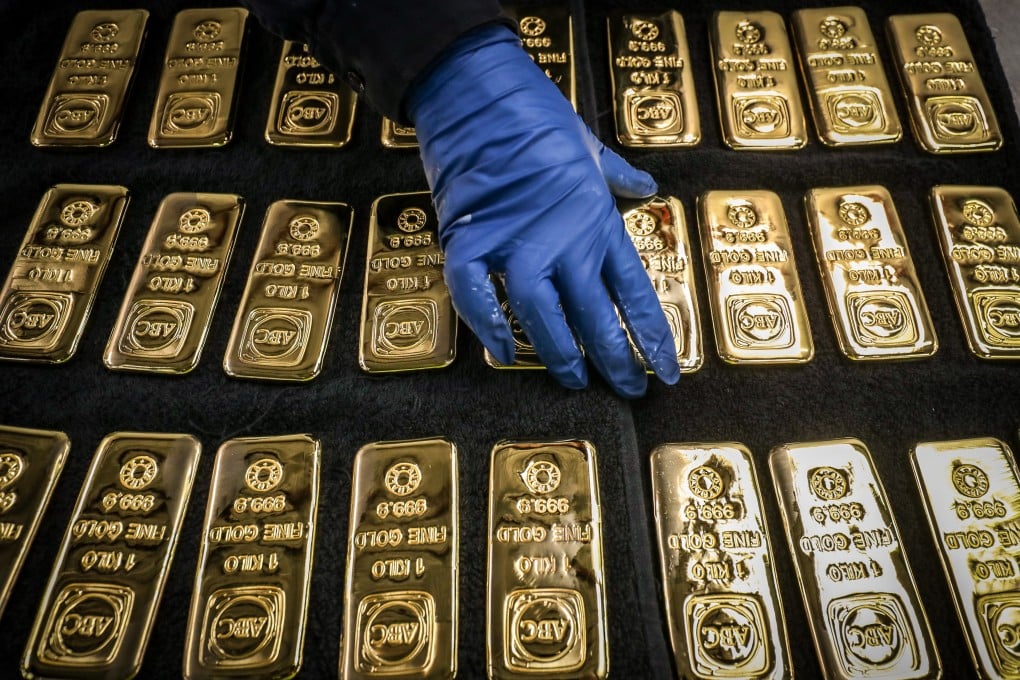Abacus | It’s time to ditch the crashing US dollar and buy groceries with gold. Here’s how
- Investors are driving gold prices to all-time highs as they seek a safe haven from a falling dollar and the coronavirus
- Fintech advances are already making it possible to save and spend physical gold on a card

THE BIGGER THEY ARE, THE HARDER THEY FALL

02:09
Gold loses its shine in India as Covid-19 pandemic keeps sales down and shops closed
People sometimes forget that gold is not just luxury jewellery and fancy coins, but that it’s traded just like a currency. And like a currency it is freely convertible into other major currencies, meaning the US dollar can fall in value against gold just as it can against any other currency. Now that an ounce of the precious stuff has marked new highs over US$2,000 to the dollar, perhaps it has already done so to a degree.

01:32
Indian man wears US$4,000 gold face mask to protect from coronavirus
GOLD, REAL AND VIRTUAL
Gold differs from other physical stores of value, like the diamonds in your safe or the Rolexes under your bed, in that there is price discovery for all market players. Whereas diamond prices are essentially dictated by De Beers, and the price of Rolex watches by their maker – and they go up each year.
You can also buy virtual gold (and silver) through futures, ETFs (exchange-traded funds) or derivative-laden funds, but this can be risky since you’re not always buying real gold and that actually belongs to the fund or the derivatives product issuer.
